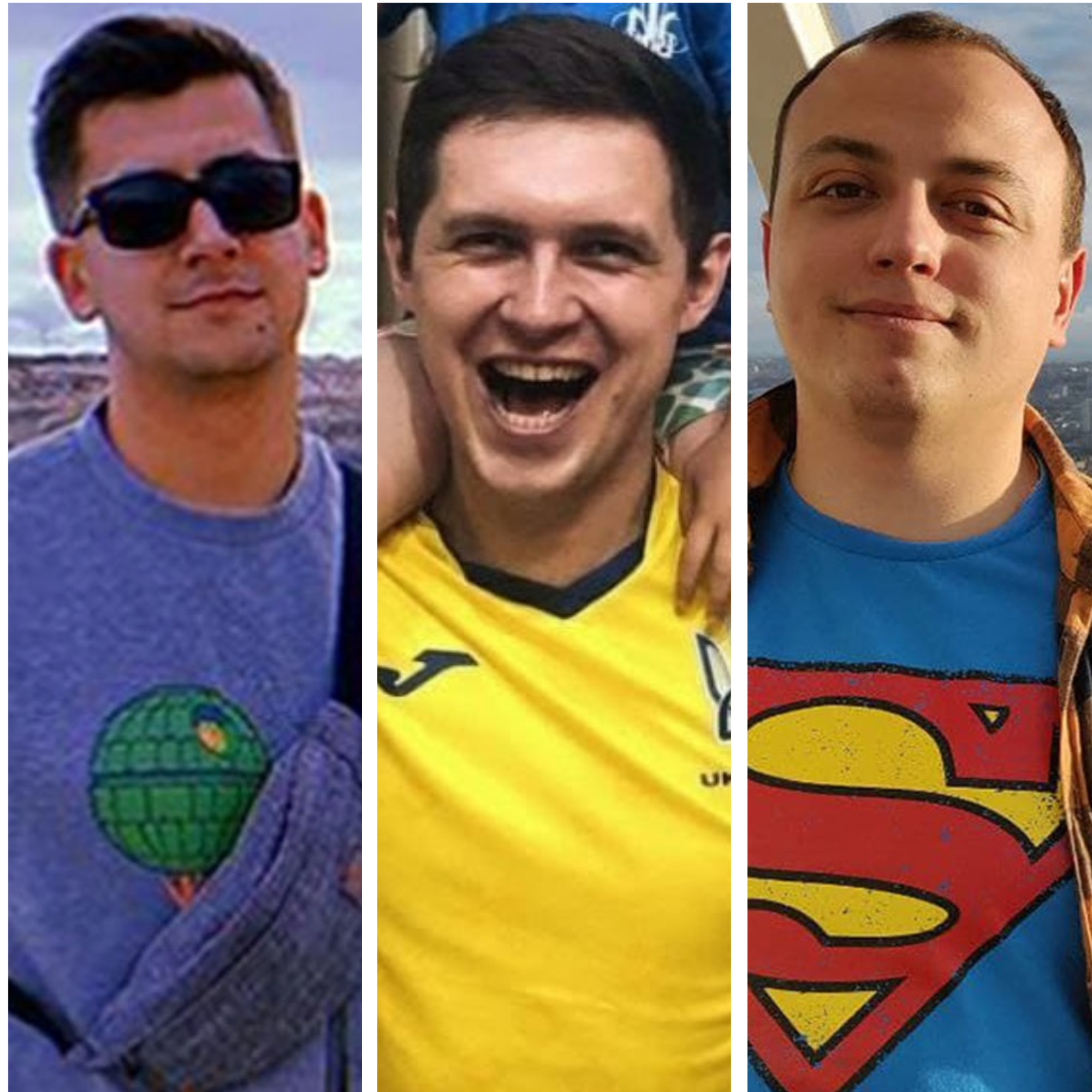UK firm’s Ukrainian web developers reflect on new lives in wartime
The men, who are based in Lviv in western Ukraine, are helping the military and taking in refugees from the east.

Your support helps us to tell the story
From reproductive rights to climate change to Big Tech, The Independent is on the ground when the story is developing. Whether it's investigating the financials of Elon Musk's pro-Trump PAC or producing our latest documentary, 'The A Word', which shines a light on the American women fighting for reproductive rights, we know how important it is to parse out the facts from the messaging.
At such a critical moment in US history, we need reporters on the ground. Your donation allows us to keep sending journalists to speak to both sides of the story.
The Independent is trusted by Americans across the entire political spectrum. And unlike many other quality news outlets, we choose not to lock Americans out of our reporting and analysis with paywalls. We believe quality journalism should be available to everyone, paid for by those who can afford it.
Your support makes all the difference.Hunting for saboteurs, making Molotov cocktails and running for shelter as air raid sirens sound has become the new life for Ukraine-based website developers who work for a UK company.
One of the three men, who are based in Lviv in western Ukraine, has opened up his home to refugees fleeing from the east and has donated blood as part of efforts to help his country.
The men say that life in Lviv is “scary” and “not safe at all” despite it so far not being the focus of Russian attack.
Just half an hour before speaking to the PA news agency, Rostyk Chaikivskyi, 31, said he had gone to a shelter as the air alarm had sounded.
He said it had been calmer in recent days with no alarms, but he now fears a “second wave” is starting.
“A few days in a row, four or five, there were no alarms in Lviv and it was really weird because for 10 days straight we were every day hearing alarms.
“And now it’s started again,” he said, adding: “It’s scary.”
Mr Chaikivskyi, whose wife Anastasiia volunteers helping refugees, said they moved to his wife’s parents’ house along with their five-year-old daughter Melanie as there is a better basement there for shelter.
He says they stay at home as much as possible, adding: “It’s complicated to relax and we don’t live our regular lives at the moment.”
They have no plans to leave Ukraine, with Mr Chaikivskyi saying: “It just feels more right to be together with our people here.”
Vitaliy Yaruta, 28, has opened up his spare bedroom to refugees and has already welcomed a couple from Kyiv, a pregnant woman and her four-year-old daughter from Kharkiv, and a 23-year-old woman who had an 18-month-old daughter.
He said people who have fled are “traumatised”, adding: “A lot of people are stressed and panicking.”
Mr Yaruta is currently sharing his home with a man from Mykolaiv and plans to continue taking people in.
He told PA: “I’m doing this because I can do this, and someone needs the shelter. For me, it’s not a big deal.”
He added: “A lot of people, we have, I guess, the survivor syndrome.”
Mr Yaruta said he has donated blood and prepared Molotov cocktails.
He said that on a single day there were 3,000 Molotov cocktails sent to Kyiv, and he has since heard that 15,000 have been sent.
Volodymyr Senyk, 28, said that when the war started he wanted to help the military but there were so many men with experience who were taken on that he instead joined security patrols of the city looking for saboteurs.
He said this involves helping police check cars and checking people’s documents on the street.
Mr Senyk said his wife, the boss of a social media agency, now makes nets and bakes bread for the military.
“We just try to help how we can,” he said.
Mr Senyk said he and his friends had planned to go on holiday to Sri Lanka in March.
“But now we don’t want to leave our country and we stay here until the end because it’s our land,” he said.
Mr Senyk said life has got “really scary”, adding: “We have a lot of relatives here, old relatives. My father has a problem with his legs and he can’t go fast to a shelter.”
Mr Senyk has now stopped patrolling and is getting military training where he is being taught tactics.
The three men work for UK policy communications firm Cast From Clay which was founded in the wake of Brexit with the aim of driving engagement between policy experts and the general public.
Tom Hashemi, managing partner at Cast From Clay, told PA: “Things have changed hugely. Two weeks ago, the content of my conversations with Rostyk, Volodymyr and Vitaliy was planning for future web builds, doing capacity planning, bug fixing, figuring out whether we can do what we promised to the client by the time that the client wants it.
“Now it’s just completely different. The conversation today is what’s happening on the ground, how are they feeling, conversations around mental health and emotional wellbeing and trying to, I guess, muddle our way through this.”